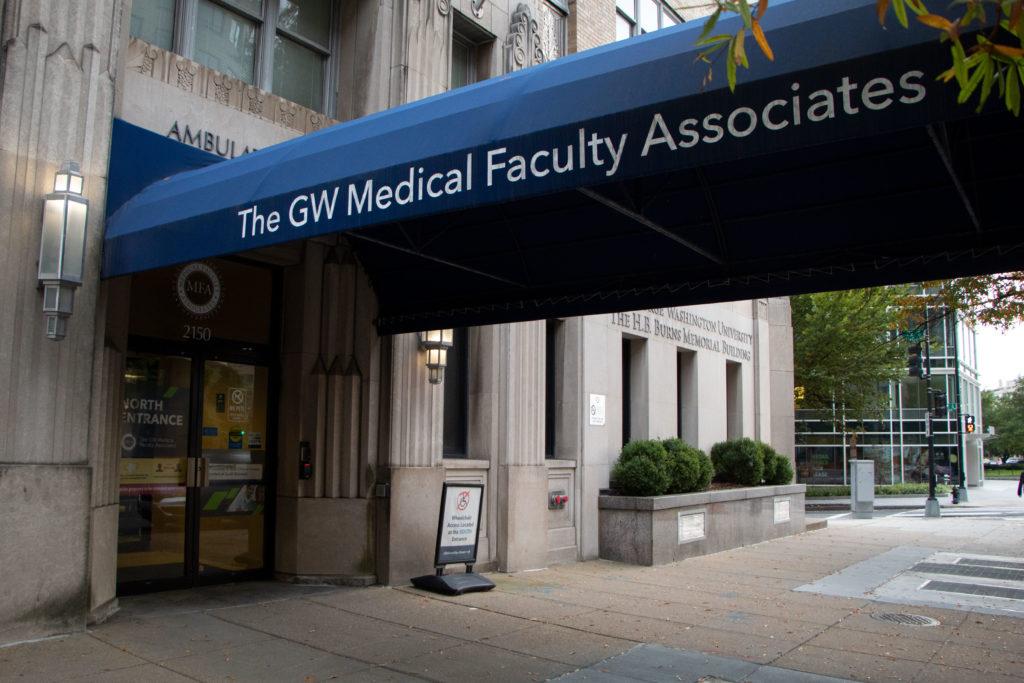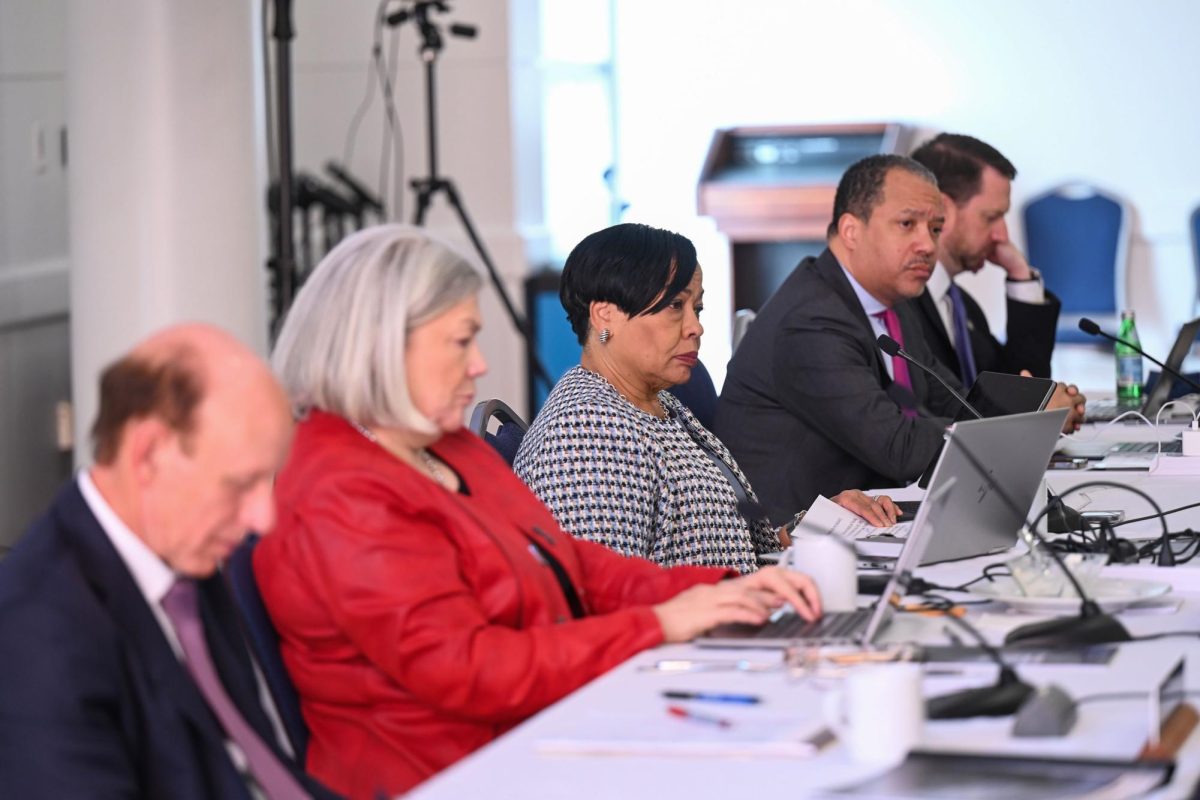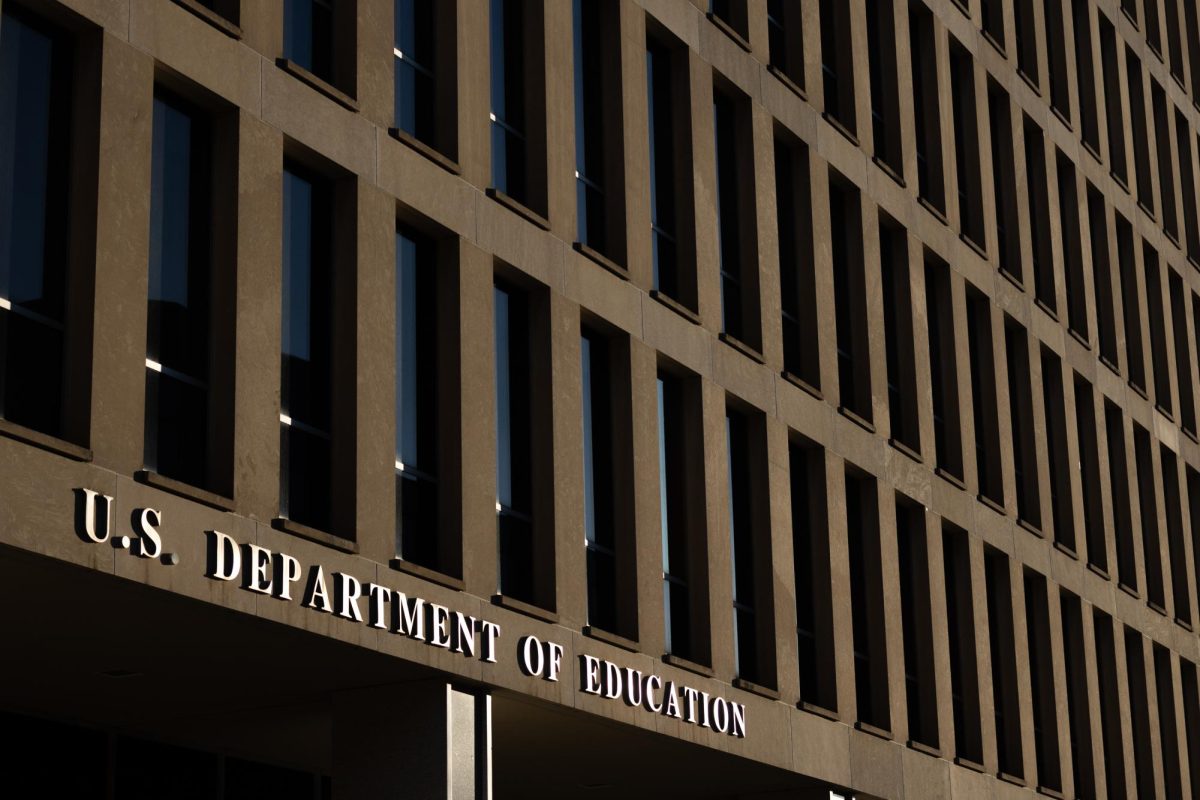Faculty senators are doubtful officials will follow through on their plans for the Medical Faculty Associates to break even by next June with $200 million of debt mounting on the health care provider network.
Officials restructured the MFA in August to improve its financial standing through yearly payments from Universal Health Services to GW, “trademark royalties” and a “fair market rent repayment” on GW property, according to a report on the MFA delivered at last Friday’s Faculty Senate meeting. MFA CEO Barbara Bass said at the meeting that the sale of GW’s 20 percent minority stake in the GW Hospital will help redirect clinical revenue to the MFA, which partially staffed the hospital.
She said the MFA’s “hands were bound” by the District Hospital Partners, the agreement between the University and UHS to operate the GW Hospital, which made it “impossible” for the MFA to become a profitable institution. The former financial relationship between the MFA, UHS and the GW Hospital was unclear from Bass’ statements at the meeting.
Bass said the drop in MFA revenue, which she attributed to the pandemic, pushed officials to restructure the MFA’s relationship with DHP. She said GW’s sale of the minority stake in the hospital will make the MFA profitable, claiming it created a “modern funds flow arrangement,” but she did not explain how it would do so.
“There was no forward position for the MFA as a clinical enterprise without a reset of the relationship with Universal Health Services,” Bass said.
The report did not detail how the MFA would execute the terms of its new agreements, which, in combination with the MFA’s dramatic financial losses, stirred frustration among faculty senators at the meeting.
The MFA lost nearly $80 million in fiscal year 2021 – which spans from July 2020 through June 2021 – plummeting 200 percent from its FY 2016 levels. The report states the MFA’s net profits have fallen each fiscal year since 2019, with $43 and $48.1 million in losses in FY 2020 and FY 2021, respectively.
Officials plan to increase the MFA’s revenue by more than $60 million and decrease its expenses by $2 million to break even in FY 2023 – which ends June 30, according to the report.
Bass’ appearance at last week’s meeting marks the first time she has publicly taken questions about the MFA and its finances since the MFA became a topic of discussion at any Faculty Senate meeting in recent memory.
GW CFO Bruno Fernandes said the University extended a $50 million loan that it granted the MFA in March 2021 to a $140 million loan to help offset the MFA’s losses during the pandemic. He said the MFA is expected to pay back $120 million of the loan with interest to the University in the next 15 years, and the MFA will use the other $20 million for operating costs.
Fernandes did not clarify whether the University will forgive the $20 million.
“I will say that it is important to note that the University providing a loan to the MFA has no impact on the University revenue, expenses or margins,” Fernandes said. “It’s purely a balance sheet transaction that provides cash to the MFA in exchange for a note receivable.”
Faculty senators said schools like the Columbian College of Arts and Sciences, which they said has “inadequate” financial support, would be better suited to serve its students and support its faculty if the University directed the funds they are currently loaning to the MFA to the academic schools instead. They said they don’t believe the MFA will break even next year because, without clear communication, officials’ financial projections don’t “make sense.”
Sarah Wagner, a professor of anthropology and a faculty senator, said officials’ efforts to direct funds to the medical enterprise “stings” because CCAS faculty have struggled to hire student researchers and conduct research projects. She said the lack of financial support has caused a “devastating” effect on the anthropology department.
“When will we see equal prioritization of the fundamental services and support systems for the units in this university that are currently carrying the MFA on their backs?” she said at the meeting. “I know that’s blunt, but I want you to feel the pain and the way in which the infrastructure is stymieing our ability.”
Officials directed $50 million toward a set of endowed professorships in the academic medical enterprise last month with profits gained from GW’s $54 million sale of its minority stake in the GW Hospital in May.
Wagner said officials’ efforts to bolster GW’s medical enterprise through the new professorships comes as a “bit of a surprise.”
“The Columbian College faculty, we feel like a conversation is happening without us participating in it,” Wagner said. “We have deep-seated fears around the financial structure.”
Eric Grynaviski, an associate professor of political science and international affairs and a faculty senator, said University leaders have not communicated how they will cap the amount of debt they will allow the MFA to maintain, which makes the amount the MFA can borrow without repercussions appear unlimited.
“I don’t see a red line,” Grynaviski said. “I don’t see a plan for what they’re doing with the money. I just see us covering either inefficiencies or doctor salaries, and I just don’t get it.”
Susan Kulp, a faculty senator and co-chair of the senate’s fiscal planning and budgeting committee, said she wants more transparency from the MFA’s leadership about how it will break even. She said quarterly check-ins about the MFA’s financial statements to the senate would allow senators to gauge how the MFA is moving forward.
She said she “scratched [her] head” when Fernandes presented the plan to break even for FY 2023 because she didn’t see a strategic or quarterly plan for how the MFA will reach its financial goal.
“It’s just about having access to transparent information and answers, and not an opinion of what we should do,” Kulp said.
Caroline Laguerre-Brown, the vice provost for diversity, equity and community engagement, was set to give an update on the University’s new Title IX regulations at the meeting but it was moved to next month’s meeting agenda after faculty discussion on the MFA’s finances extended beyond the allotted time for the meeting.
Senators also unanimously approved a resolution of appreciation for Elizabeth Amundson, University registrar and secretary for the senate, for her “extraordinary service” to the senate since 2004. Amundson will depart from the University Nov. 4, the resolution states.
Caitlin Kitson, Roxie Parker, Jackson Rickert, Lauren Simon, Nick Pasion, Zach Blackburn and Daniel Patrick Galgano contributed reporting.











